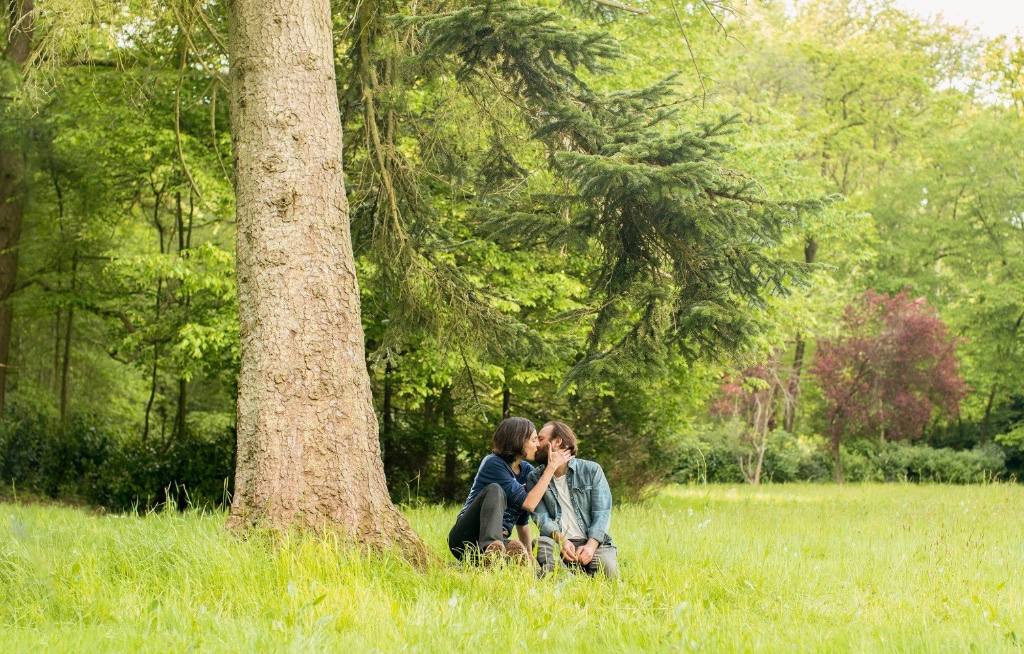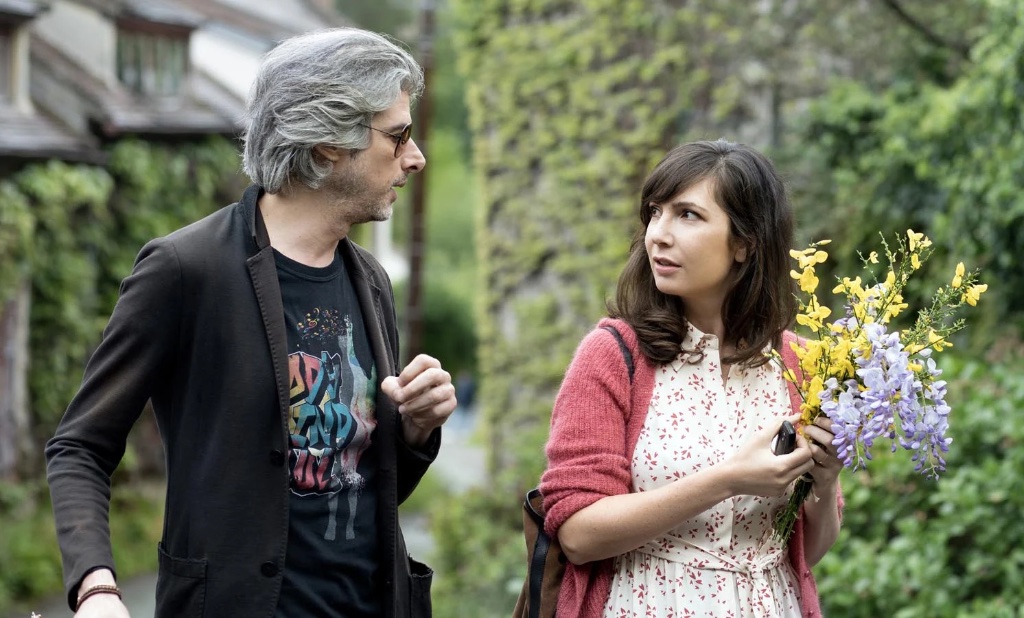
As a Parisian who was cooped up in a small apartment during the various lockdown periods for COVID-19, I was extremely envious of French people who were able to hunker down in lovely country houses with big gardens, while we were even locked out of the city’s parks during the one hour a day we were allowed to go outdoors. Now, one of those lucky people, Olivier Assayas, has made a film about his Covid-induced séjour à la campagne, called Hors de Temps (Suspended Time).
Assayas, who started out as a film critic before becoming a screenwriter and director, is known for making films and TV miniseries in a wide variety of genres. What genre is Hors de Temps? I would say it’s in a class of its own – let’s call it nostalgic autofiction. While the main character is called Paul, he is obviously a stand-in for Assayas himself; there is even a moment in the movie where Paul tells a story about one of his ancestors, whom he names: Assayas.
The film begins with Paul describing in a long voiceover the house and the adjacent large private park next to it, complete with tennis courts, which the characters had access to during lockdown. As he speaks, the camera pans over the house and the countryside, sun-drenched and abloom with purple flowers.
Staying in the house during the voluptuous springtime of 2020 with Paul (Vincent Macaigne), a filmmaker, are his brother Étienne (Micha Lescot), a music journalist, and their girlfriends, respectively Morgane (Nine D’Urso) and Carole (Nora Hamzawi), with whom neither man has lived with before.
That long descriptive voiceover sets the tone for the rest of the film: talk, talk, talk, squabble, squabble, squabble, occasionally interrupted by intellectual discussions about such topics as Madame Bovary or reminiscences about the brothers’ childhood in the house.
A few chuckles are provided by Paul’s paranoia about Covid. He is up on every detail of the pandemic and follows the recommendations he finds on the Internet to a tee, or tries to, triggering lots of personal memories in viewers. He and his brother argue often over them: how far they should go in sterilizing their groceries, the ethics of ordering books and objects from Amazon, etc.
This rambling, plotless, self-indulgent one-hour and 45-minute visit to a lovely spot in the Vallée de Chevreuse might have made a thoughtful and interesting written essay or maybe even a good short subject if it could have found a snappy point to make, but as a feature film, it falls flat (where’s the arc? where’s the drama?), talky and simply boring, saved only by the dreamy shots of the spectacular springtime during lockdown, which the narrator remembers as a magical moment out of time. There’s some truth in that.
Favorite
